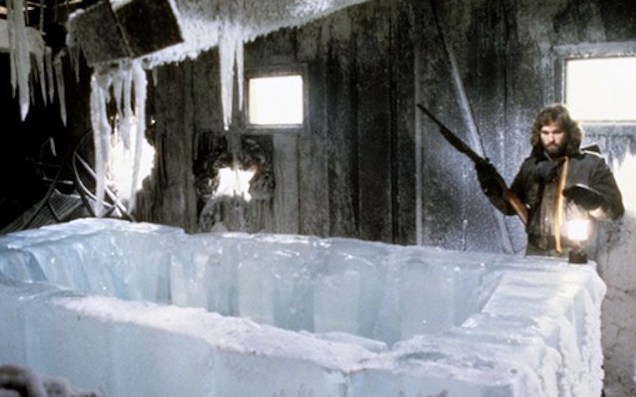
The message of the 1993 documentary film Jurassic Park was subtle – buried in dense symbolism for the viewer to tease out after repeated study – but definitely there: messing with Mother Nature is an act of extreme hubris that will likely end in disaster.
But, like Icarus, whose waxy wings bore him euphorically upwards, our scientists are simply too caught up in the thrill of what they’re doing to realise that they are flying too close to the sun. In a paper published in the scientific journal Doklady Biological Sciences, researchers announced that they had successfully brought back to life a number of worms that had been frozen in permafrost for over 30,000 years.
[jwplayer kZ1UKZzl]
According to the paper, the nematodes (read: tiny worms) were from two different samples of Siberian permafrost, believed to be 32,000 years old and 42,000 years old respectively. The permafrost containing the worms was taken from the Kolyma River Lowland in eastern Siberia, then placed in a petri dish with some food and warmed up at around 20 degrees Celsius.
The worms (all females of either the Panagrolaimus detritophagus or Plectus parvus nematode species) represent “the first data demonstrating the capability of multicellular organisms for longterm cryobiosis in permafrost deposits of the Arctic“, the scientists claim.
While this sounds like a combination of Jurassic Park and The Thing just waiting to happen, it’s worth noting that a) neither of the species of nematode was extinct and b) a nematode is generally about half a millimetre in length and not particularly liable to eat you in one bite while you’re hiding on a toilet.
The main takeaway from the study is probably that you can store your nematode for as long as you like, but the researchers also believe that figuring out the mechanisms that allow these gentle worms to survive being cryogenically frozen could have big implications in areas like “cryomedicine, cryobiology, and astrobiology“. Science: what a rush.
This is centred on the wrong pole but still seems thematically appropriate:







